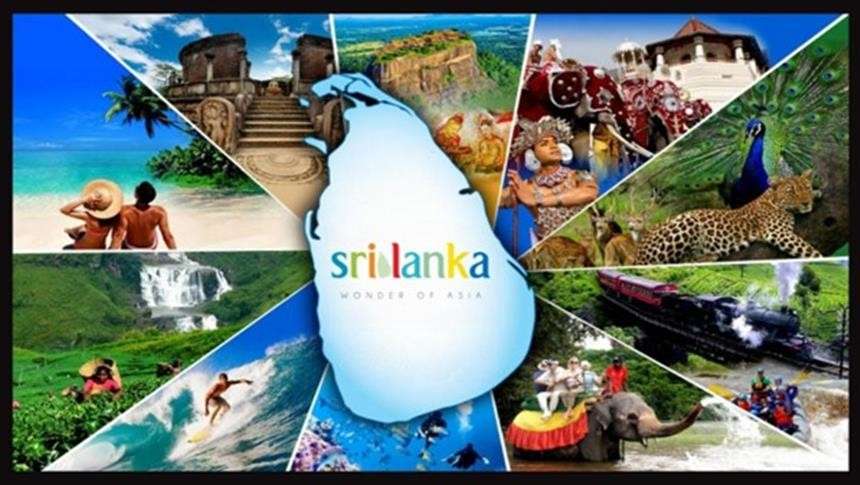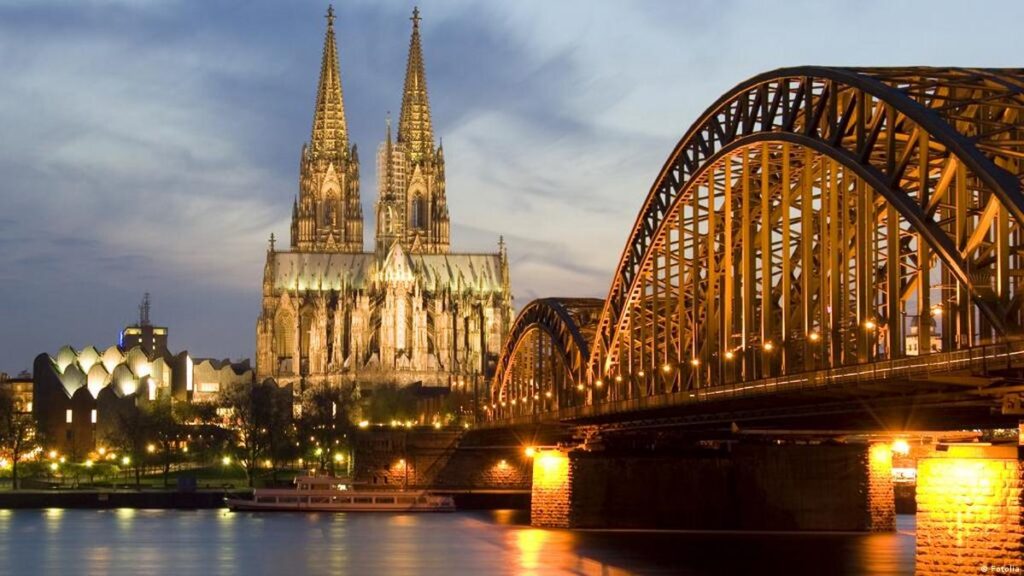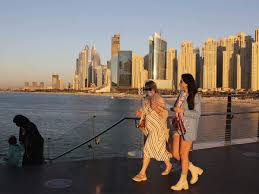Tourism after Covid 19 has become a struggling industry. The industry not only got affected by almost all the countries, the different smartness levels of the destinations has also been subdued due to lockdowns and businesses closedowns. Many countries are trying to gain momentum in the tourism industry. Some are:
1. Santa Lucia Tourism after Covid-19:
The Tourism authority of Santa Lucia launched an campaign of welcoming future visitors by re-marketing itself as the only tourist destination with female name adopting tagline- Let her inspire you. They are focusing to attract visitors by offering responsible tourism with inspirational spirit of Santa Lucia. Santa Lucia is reviving its tourism while recovering still from the after effects of Covid-19. The United Nations Development Programme (UNDP) launched the “FUT-Tourism: Rethinking Tourism and MSMEs in times of COVID-19” project in January 2021 in Barbados and the Eastern Caribbean with the goal of revitalizing the tourism industry through regional policy solutions and dialogues as well as providing technical and financial support to Micro, Small, and Medium-Sized Enterprises (MSMEs) operating in the sector. Anguilla, Antigua and Barbuda, Barbados, the British Virgin Islands, Dominica, Grenada, Montserrat, Saint Kitts and Nevis, Saint Lucia, and Saint Vincent and the Grenadines were the ten Eastern Caribbean nations and territories that were targeted.

2. Vietnam, Asia Tourism after Covid-19:
Vietnam’s quick and meticulous response to the Covid-19 Coronavirus has been widely praised for its success of curbing the virus from spreading in a densely populated nation of 97 million citizens.
After that first, temporary shutdown, the cities reopened, but the tourism scene had undergone significant changes. Vietnam’s tourism businesses quickly turned their attention to domestic tourists after eliminating international visitors. Vietnamese visitors also have a deeper comprehension of the places they visit, know the local language, and spend less money overall. This implies that cultural customs and traditions that are unfamiliar to visitors from other countries are really a typical aspect of daily life.
The tourist industry has to change course as a result. In particular, foreign language proficiency—which had been a major selling factor for Vietnam’s tourist workers—was no longer required since there were almost no longer any foreign guests. Companies in the travel and hospitality industries should be creative and broaden their product offerings to include wellness, security, the outdoors, and genuine experiences.

3. South Korea, Asia Tourism after Covid-19:
Not so long-ago, South Korea held the title of the world’s second worst Covid-19 outbreak. However, the once virus hotspot is now fast approaching full recovery status. South Korea’s approach to containing the virus was slightly different. The country at no point imposed any curfews – instead, it focused on a strategy heavily dependent on technology-reliant testing and heavy contact tracing.
According to data given by the South Korean authorities, the number of South Korean tourists visiting China in January increased by more than nine times year over year. This suggests that inbound tourism has clearly recovered in the post-pandemic period. Experts stated that a number of causes, including China’s increased promotion of tourism, are fueling the expansion and forecast an increase in foreign tourists, particularly from South Korea.
Also Read Case Studies for your presentations:
- A Fun Trip Turned Tragic: Case Study of Indian Travel Influencer Aanvi Kamdar
- Sustainability in Transport Tourism through Collaboration: Case Study on Parkbus
- 10 Lessons from Business Case Study on WhatsApp
- Sudden Rise of Affordable Home Stays in Ayodhya- A Tourism Case Study
- Path to Equality: Exploring Gender Mentality in Women’s Outdoor Leadership Case Study
Travel outside from South Korea has steadily increased since the epidemic ended. 142,000 South Korean nationals traveled to China in January, up 9.3% month over month and 908.7% year over year, according to figures released by the South Korean Ministry of Justice and published by people.
23.17 million travels were made abroad from South Korea in total in 2023, which remained close to 80% of 2019’s figure. The reduction of travel restrictions and the reopening of borders are mostly to blame for this development. South Korea’s recovery in terms of foreign travel has been steady and is predicted to continue growing; by the end of 2024, figures suggest that it will have surpassed pre-pandemic levels. Leisure travel will play a major role in driving the resurgence of the South Korean tourist industry.

4. Sri Lanka, Asia Tourism after Covid-19:
Sri Lanka’s response to the Covid-19 pandemic was swift and meticulous. The country implemented high testing rates (930 tests per 1 million people), strict curfews and its established healthcare and surveillance system have all contributed towards curbing the spread of the virus, making Sri Lanka the fastest Covid-19 recovering country in the South Asian region.

5. Germany, Europe Tourism after Covid-19:
One of the more heavier hit countries by the Covid-19 Coronavirus pandemic, Germany has now begun to see significant improvement in it’s fight to curb the spread of the virus. Businesses at the ITB travel market on Tuesday stated that despite rising prices and the conflict in Ukraine, travelers are returning in large numbers, and German tourism is poised for a boom year in 2023 as a result of the COVID-19 epidemic.

6. Hungary, Europe Tourism after Covid-19:
During the past week, Hungary officially declared the end of its ‘state of emergency’ and replaced it with the more lenient “state of epidemiological preparedness” due to the country’s Covid-19 progress improving. The country is also thinking ahead and taking precautionary steps as it begins to discuss dealing with a possible second wave.
Since tourism is one of the least sustainable and most polluting industries, it is severely affected. Recurrent pandemics, such as those caused by Ebola, AIDS, SARS, MERS, and COVID-19, have devastated economies around the globe. Unsurprisingly, tourism has been particularly badly impacted as widespread travel speeds up the spread of infectious diseases. Anti-tourist sentiments grew quickly as a result of the rise in excessive tourism and the ensuing pollution in recent decades. Present health risks have the potential to convert the unsustainable, polluting tourism into an environmentally and socially sustainable activity.

7. Dubai, Asia Tourism after Covid-19:
Dubai is ready to open tourism with precautions from July offering full safety and security concerns of travelers.
As the pandemic’s symptoms grow more under control, more individuals are opting to travel, but the availability and quality of information remains the largest variable—and maybe a deterrent. Both tourists to the UAE and those from other countries may attest to this.
There’s uncertainty about what has to be done in advance of your trip, what regulations apply, when and if you need a test, what paperwork is required, and so on. Governments may empower travelers with more confidence, knowing they are adhering to the right protocol, by establishing a centralized source of information that provides clarity to every phase of the journey.

8. Tunisia, Africa Tourism after Covid-19:
Tunisia is looking to begin lifting its lockdown and open up the country as the overall country’s Covid-19 progress continues to improve. The Covid-19 Data Analytics shows that Tunisia experienced it’s peak during 11-04-2020 and 21-04-2020. Since then the progress has improved with 995 Recovered cases.

9. Morocco, Africa Tourism after Covid-19:
Morocco’s Covid-19 recovery measures of declaring a state of emergency and imposing strict curfews are starting to pay off as today Morocco is inching closer to a full recovery and looking to re-establish normal country operations soon.
Morocco has succeeded in spite of obstacles. From announcing the new disruptive tourism strategy to handling the impact of the earthquake on tourism and unveiling the emergency plan to safeguard employment during the pandemic.
The Atlas Lions’ incredible performance during the Qatar World Cup, the World Bank and IMF Annual Meetings that Morocco successfully hosted in Marrakech just weeks after the earthquake, and the news that Morocco will co-host the 2030 FIFA World Cup have all contributed to Morocco’s tremendous momentum.

10. Barbados, Americas Tourism after Covid-19:
The Eastern Caribbean country with sky blue beaches is another island nation that has managed to curb the spread of the Covid-19 Coronavirus before it reached staggering numbers. The active percent of affected are lower keep on falling giving a fully recovery sign.



